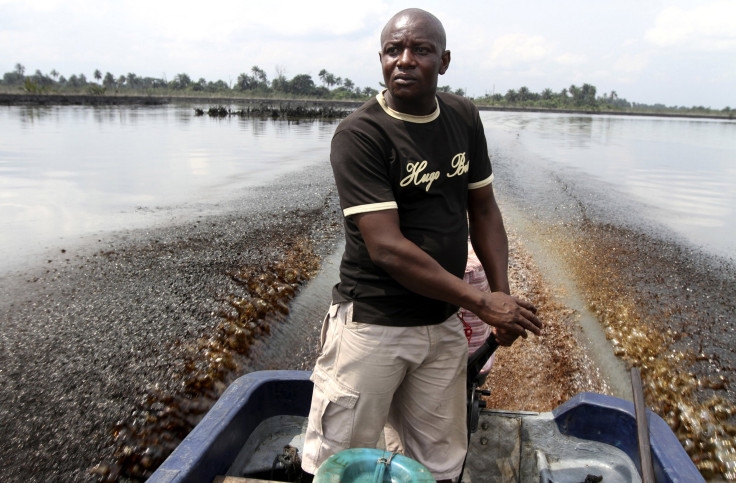Shell May Be Liable For 2008-2009 Nigerian Oil Spills

A case involving Shell Oil Company had a breakthrough on Friday when a U.K. judge ruled that the oil giant was liable to provide certain security measures to protect its pipelines in Nigeria after two spills in 2008 and 2009 devastated a Niger Delta community.
Shell and the claimants -- 11,000 residents of the Bodo community represented by the U.K. law firm Leigh Day -- have different interpretations of the ruling. Mr. Justice Akenhead ruled in the London Technological and Construction Court that a Nigerian oil law does not hold the oil company liable for damages due to theft, but mentioned that the company was liable to install protective measures. Protective measures include leak detection systems, surveillance equipment and anti-tamper equipment, according to Amnesty International, which has covered the Shell-Bodo trial heavily.
That ruling prompted Amnesty International to label it a major victory for the claimants. The activist group’s director of global issues, Audrey Gaughran, calls the ruling “a shot across the bows for Shell.”
“The court’s message is clear,” Gaughran said. “If you don’t take adequate measure to protect your pipelines from tampering, you could be liable for the damages caused.”
Shell, however, isn’t backing down. Mutiu Sunmonu, managing director of the Shell Petroleum Development Company of Nigeria (SPDC) accused Leigh Day of having “a fundamental misunderstanding of Nigerian law.”
“We hope the community will now direct their U.K. legal representatives to stop wasting even more time pursuing enormously exaggerated claims and consider sensible and fair compensation offers,” Sunmonu said.
The ruling could have weight on a potential 2015 trial that would pit 11,000 residents of the Bodo community of Nigeria against the Dutch oil giant. The claimants appealed in 2011 for 300 million pounds in a London court.
Shell accepted responsibility for the spills and also blamed some damage on “oil theft, illegal refining and sabotage activities.” The company is offering a 30 million pound settlement offer to the Bodo claimants, but so far the community has refused it.
“Shell have consistently sought to underestimate the damage whilst paying only lip service to an apology. These spills, which are some of the largest oil spills in history, have devastated a community of many thousands of people and ravaged the environment,” Martyn Day of Leigh Day said in a statement.
There’s an enormous disparity in the amount of oil each party contends was spilled. Shell says only 1,640 barrels were spilled, but experts say up to 4,320 barrels spilled each day for 72 days. Amnesty International calls Shell’s claims about the Bodo spills “deeply suspect and often untrue.”
The trial is set for May 2015. The claimants will have to prove that Shell was guilty of neglect by failing to “protect, maintain or repair” the rusting pipeline that caused the spills in the Niger Delta.
© Copyright IBTimes 2024. All rights reserved.






















